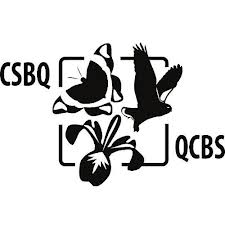Francesca Santostefano

Université du Québec à Montréal
Postdoctoral fellow candidate
Supervisor: Denis Réale
Patrick Bergeron
Start: 2017-10-01
End: 2020-10-01
Personal page
Postdoctoral fellow candidate
Supervisor: Denis Réale
Patrick Bergeron
Start: 2017-10-01
End: 2020-10-01
Personal page
Project
Social selection in the wildIn all animal species, individuals interact with each other throughout their lifetime: courtship, competition, communication, and cooperation all involve social interactions. The characteristics of conspecifics, including how they behave, have substantial consequences on an individual’s survival and reproduction. The effect of conspecifics on an individuals’ fitness is termed social selection. Despite recent interest by behavioural ecologists in the evolutionary consequences of individual behavioural variation (‘personality’), the role of behaviour as an agent of social selection has been so far overlooked and rarely tested empirically in the wild. This project aims to test in an ecologically relevant contest whether behaviours of conspecifics do indeed impose social selection. I will do so on a wild population of Eastern chipmunks (Tamias striatus), part of a large scale quantitative genetic study in a field site in Québec, Canada. This project will provide an empirical test of how an individual’s fitness is shaped by the behaviours of conspecifics. The study will make use of a long term dataset to which I will add my own data collection. I will measure key behaviours (docility, exploration) and proxies of fitness (lifetime and annual reproductive success, adult annual survival), as well as map the spatial network of territories and social network of interactions between individuals. With molecular tools and paternity assignments methods (microsatellite analyses) I will estimate the relatedness between individuals in the population and build its pedigree. I will apply quantitative genetic tools, survival and spatial analyses to estimate the effect of the social environment (i.e. genotypes/phenotypes of conspecifics) on fitness, and the strength of such effects. Because the pattern of social interactions (who interacts with whom) is usually determined by the spatial distribution of individuals in the environment, I will also investigate how different behavioural phenotypes are distributed in space, i.e. if individuals choose their neighbours (disassortatively or assortatively). Findings from this project will show the importance of interactions among conspecifics as an agent of selection, and improve our understanding of social evolution in the wild.
Keywords
social selection, social interaction, Animal behaviour, Personnalité animale/Animal personality, evolution, Spatial Ecology, quantitative genticsPublications
1- Behavioural mediators of genetic life-history trade-offs: a test of the pace-of-life syndrome hypothesis in field cricketsSantostefano, Francesca, Alastair J. Wilson, Petri T. Niemelä, Niels J. Dingemanse
2017 Proceedings of the Royal Society B: Biological Sciences
2- Indirect genetic effects: a key component of the genetic architecture of behaviour
Santostefano, Francesca, Alastair J. Wilson, Petri T. Niemelä, Niels J. Dingemanse
2017 Scientific Reports
3- Interacting with the enemy: indirect effects of personality on conspecific aggression in crickets
Santostefano, Francesca, Alastair J. Wilson, Yimen G. Araya-Ajoy, Niels J. Dingemanse
2016 Behavioral Ecology
4- Stress-induced peak (but not resting) metabolism correlates with mating display intensity in male guppies
Biro, Peter A., Kerry V. Fanson, Francesca Santostefano
2016 Ecology and Evolution
5- Do social partners affect same-sex sexual behaviour in male water striders?
Han, Chang S., Francesca Santostefano, Niels J. Dingemanse
2016 Animal Behaviour
6- Social carry-over effects on non-social behavioral variation: mechanisms and consequences
Niemelä, Petri T., Francesca Santostefano
2015 Frontiers in Ecology and Evolution

